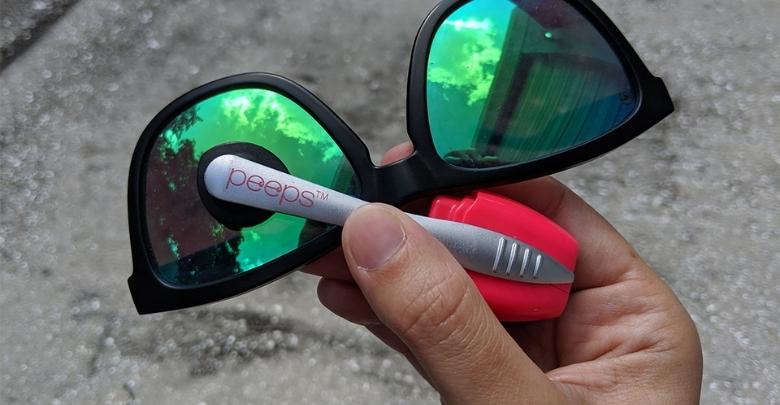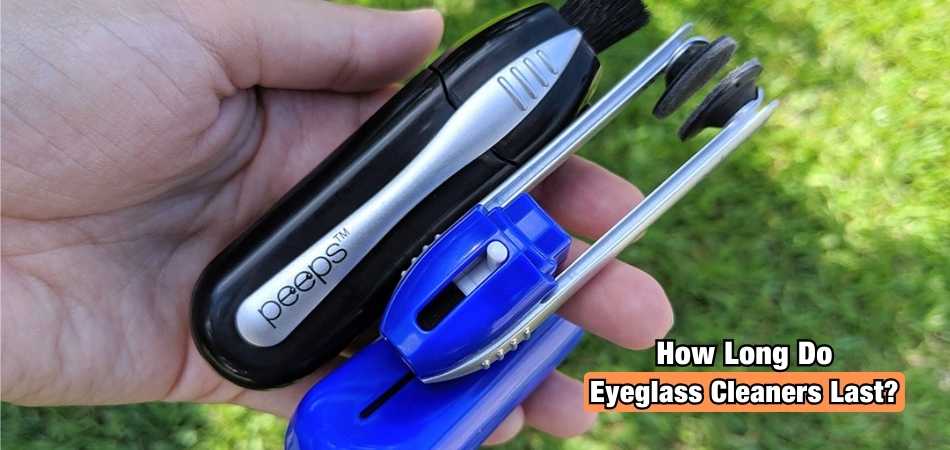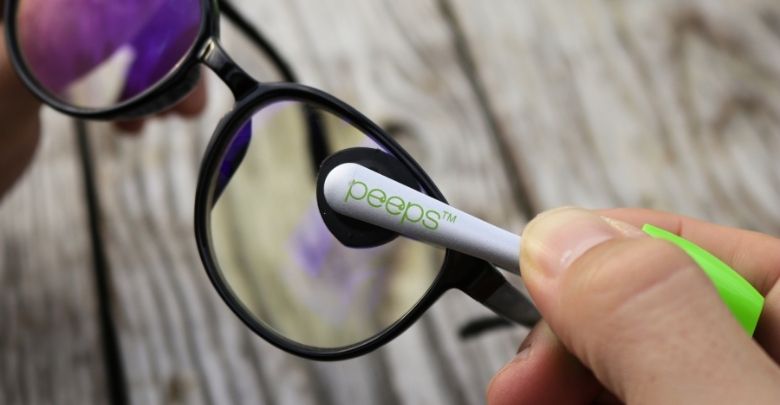Eyeglass cleaners are essential tools for keeping your glasses free of dirt, smudges, and fingerprints. Whether it’s liquid spray, wipes, or reusable tools, they all serve the same purpose: keeping lenses clear. But you might be thinking: How long do eyeglass cleaners last?
The lifespan of eyeglass cleaners depends on their type, usage, and how they’re stored. While liquid sprays can last several months, disposable wipes may dry out if not sealed properly. Reusable options, like microfiber cloths, can serve you for years with proper care.
Curious to learn more? If you want to know what affects their lifespan, how to use them correctly, or which type lasts the longest, this article has all the answers you need. Find out everything you need to know!
Why Does the Longevity of Eyeglass Cleaners Matter?
The longevity of eyeglass cleaners directly impacts both convenience and cost. A cleaner that lasts longer reduces the need for frequent replacements, saving you money over time. Besides, reliable products ensure you always have a solution to keep your lenses spotless, eliminating the frustration of blurry vision caused by smudges or dirt.

A long-lasting cleaner also helps maintain the clarity and lifespan of your eyewear. Consistent cleaning with a quality product protects lens coatings from damage and prevents scratches caused by improper cleaning methods. This is especially important for expensive prescription glasses or specialized lenses.
So, knowing how long eyeglass cleaners last will help you make better purchasing decisions. Choosing a durable, effective cleaner ensures you get maximum value while maintaining crystal-clear vision and preserving the quality of your eyeglasses for years to come.
How Long Do Eyeglass Cleaners Last?
Eyeglass cleaners are essential for maintaining clear vision and protecting your eyewear. But how long they last depends on various factors, including their type, usage, and storage. Here’s what you need to know about the lifespan of eyeglass cleaners and how to make the most of them.

Type of Cleaner Matters
Different types of eyeglass cleaners have varying lifespans. Liquid cleaners, for instance, can last anywhere from 3 to 12 months, depending on the bottle size and frequency of use. On the other hand, disposable wipes may last as long as the pack remains sealed and unused, though they can dry out over time if improperly stored. Tools like microfiber cloths or reusable cleaners, such as Peeps by Carbon Klean, offer long-term value as they can be reused for months with proper care.
Frequency of Use Affects Lifespan
How often you clean your glasses directly impacts the cleaner’s longevity. If you use eyeglass cleaners daily, a small spray bottle or a pack of wipes will deplete faster compared to occasional use. For daily users, investing in larger bottles or reusable options ensures you always have an effective cleaning solution on hand. Moderate users might find smaller bottles or wipe packs sufficient, lasting several months before a replacement is needed.
Storage Conditions Play a Role
Proper storage extends the life of eyeglass cleaners. Liquid cleaners should be stored in a cool, dry place to prevent evaporation or chemical breakdown. Wipes must remain sealed tightly to avoid drying out. Tools like microfiber cloths should be cleaned regularly to maintain their effectiveness. Exposure to heat, moisture, or air can shorten the lifespan of any cleaning product, so store your cleaner responsibly for optimal performance.
Quality of the Cleaner Matters
High-quality eyeglass cleaners typically last longer because they are more effective, requiring less product per use. A single spray or swipe of a premium cleaner can clean your lenses thoroughly, reducing unnecessary waste. Low-quality cleaners may require more product to achieve the same result, depleting the bottle faster. Opting for trusted brands and tools ensures longevity while keeping your glasses spotless and protected.
How You Use It Impacts Longevity
Using your cleaner correctly extends its life. For liquid sprays, a small, even mist is enough for cleaning both lenses—over-spraying waste products. Wipes should be used efficiently, starting from one side of the lens to the other. Tools like microfiber cloths must be handled gently and washed regularly. Misusing or overusing any eyeglass cleaner will naturally shorten its lifespan and reduce its efficiency.
Reusable Options Offer Extended Use
Reusable eyeglass cleaning tools are a cost-effective and eco-friendly solution. Products like microfiber cloths or innovative tools provide extended use with proper maintenance. These tools can clean lenses hundreds of times before showing signs of wear. While the upfront cost might be higher, reusable options last significantly longer than single-use products, making them a smart investment.
The lifespan of eyeglass cleaners depends on factors like usage, storage, and quality. By choosing the right product and using it correctly, you can extend its longevity and keep your eyewear in top shape. Whether you opt for liquid cleaners, wipes, or reusable tools, maintaining proper care ensures that your eyeglass cleaner serves you well for months to come.
What Are Eyeglass Cleaners Made Of?
Eyeglass cleaners are specially formulated to ensure clear, streak-free lenses without damaging the surface. They contain a combination of safe and effective ingredients that work together to remove smudges, dirt, and oils. Here’s a closer look at what goes into eyeglass cleaners.
Water-Based Solutions
Most eyeglass cleaners use a water-based formula as their foundation. Distilled water is often preferred because it’s free from impurities and minerals that could scratch or damage lenses. The water helps dilute other cleaning agents, ensuring the cleaner is gentle while still effective at removing grime.
Surfactants for Cleaning
Surfactants are the main cleaning agents in eyeglass cleaners. These compounds break down oils, fingerprints, and stubborn smudges on the lenses. By loosening debris, surfactants allow for effortless wiping, ensuring your glasses stay spotless. They are safe for lens coatings, such as anti-glare or UV protection.
Alcohol or Alcohol-Free Formulas
Some eyeglass cleaners contain small amounts of alcohol, such as isopropyl alcohol, to help dissolve oils and evaporate quickly. Alcohol-based solutions are effective for streak-free cleaning, but must be used carefully on lenses with special coatings. Alcohol-free options are available for sensitive lenses, ensuring gentle cleaning without compromising quality.
Additives for Lens Protection
Many eyeglass cleaners include additives that improve performance and protect lenses. Anti-static agents prevent dust buildup, while streak-resistant additives ensure a clean, clear finish. These key components of eyeglass cleaner make them effective and reliable for both prescription glasses and sunglasses.
pH-Balanced Formulas
To ensure safety for delicate lenses, eyeglass cleaners are often pH-balanced. This means the solution is neither too acidic nor too alkaline, reducing the risk of damaging lens coatings. A balanced formula ensures the cleaner is tough on dirt but gentle on your eyewear, preserving its clarity and longevity.
Gentle Additions for Fragrance or Residue-Free Use
Some eyeglass cleaners are completely odorless, while others include mild fragrances for a fresh finish. However, residue-free formulations are often prioritized to ensure no streaks or films remain on the lenses. This ensures your glasses are left clean, clear, and ready for use.
Eyeglass cleaners are made of carefully chosen ingredients that combine safety and effectiveness. Whether alcohol-based or alcohol-free, their components work together to keep your lenses spotless, making them essential for everyday eyewear maintenance.
Factors That Affect the Lifespan of Eyeglass Cleaners
The lifespan of eyeglass cleaners depends on several factors that determine how long they remain effective and usable. From product type to storage conditions, knowing the factors below can help you make the most of your eyeglass cleaner.
Type of Eyeglass Cleaner
The type of cleaner you choose significantly impacts its lifespan. Liquid sprays typically last several months, depending on their size and usage frequency. Disposable wipes, on the other hand, have a shorter lifespan because they dry out once opened or exposed to air. Reusable tools like microfiber cloths can last for months or even years if they are well-maintained and cleaned regularly. Choosing the right cleaner based on your needs can ensure a longer product life.
Frequency of Use
How often you clean your glasses plays a major role in determining how long your eyeglass cleaner will last. Daily users will go through a small spray bottle or pack of wipes much faster compared to occasional users. If you use your cleaner multiple times a day, consider purchasing larger bottles or reusable tools. This ensures you always have a cleaning solution available while optimizing its lifespan.
Quality of the Product
High-quality eyeglass cleaners tend to last longer and perform more effectively. Premium cleaners require smaller amounts to achieve clean, streak-free results, meaning the product lasts longer overall. In contrast, lower-quality cleaners may require frequent reapplication, which depletes the product faster. Investing in a trusted, high-quality cleaner ensures a longer lifespan and better results for your lenses.
Storage Conditions
Proper storage is key to preserving the lifespan of your eyeglass cleaner. Liquid sprays should be kept in a cool, dry environment to prevent evaporation or breakdown of their cleaning agents. Disposable wipes need to be tightly sealed to avoid drying out. Tools like microfiber cloths should be kept clean and free of dust. Exposure to extreme heat, moisture, or air can shorten the life of any cleaner, making careful storage essential.
Proper Usage
The way you use your cleaner directly affects how long it lasts. For spray cleaners, a single mist is usually enough to clean both lenses. Over-spraying wastes the product and shortens its lifespan. Wipes should be used efficiently, ensuring you clean the entire lens before discarding it. Reusable tools like clothes must be washed gently and regularly to maintain their cleaning power. Correct usage helps extend the cleaner’s effectiveness and value.
How to Choose the Right Eyeglass Cleaner?
You can ensure clear vision while keeping your lenses safe by choosing the right eyeglass cleaner. There are so many options available today that choosing a cleaner that is right for you is essential. Here’s what to look for when making your decision.

Consider Your Lens Coatings
Different eyeglass lenses have protective coatings like anti-glare, UV protection, or blue-light filters. Some cleaners may contain chemicals that can damage these coatings over time. Always choose a cleaner labeled as safe for coated lenses to ensure effective cleaning without risking wear or damage to your eyewear. Taking a moment to check compatibility can save you from costly lens replacements in the future.
Alcohol-Based vs. Alcohol-Free
Alcohol-based cleaners are excellent for removing oil and providing streak-free results. However, they may be too harsh for sensitive coatings. Alcohol-free formulas are a safer choice for delicate lenses, offering gentle yet effective cleaning. Assessing the difference will help you maintain lens clarity while extending the life of your glasses.
Check for Residue-Free Formulas
A good eyeglass cleaner should leave your lenses clear and streak-free. Some low-quality products may leave residue or films that blur vision. Opt for high-quality cleaners with residue-free formulations to ensure your glasses stay spotless and ready for use throughout the day. A residue-free solution also reduces the need for frequent re-cleaning, saving time and effort.
Look at the Packaging Type
Eyeglass cleaners come in various packaging, such as spray bottles, disposable wipes, or reusable tools. Spray bottles are cost-effective for daily cleaning, while pre-moistened wipes are perfect for on-the-go convenience. Tools like microfiber cloths or reusable options are great for long-term use and value. Choosing the right packaging ensures you always have a cleaning option that matches your lifestyle.
Compare the Cost and Value
When choosing a cleaner, you should consider the overall cost of eyeglass cleaners and their value. While cheaper options may seem appealing, they often lack quality and effectiveness. Investing in a slightly higher-priced cleaner ensures better performance and longer-lasting results, saving you money over time. A balance between cost and quality is key to making a smart purchase.
Look for Trusted Brands
Reputable brands offer products that have been tested for safety and effectiveness. Reading reviews or checking for recommendations ensures you’re choosing a reliable product. Trusted brands prioritize both lens protection and cleaning efficiency, providing peace of mind for your eyewear care. By sticking to well-known names, you minimize the risk of using low-quality products.
Common Questions and Answers
Maintaining eyeglass cleaners effectively requires knowledge of how they work and what impacts their longevity. Below are some frequently asked questions to help you use and care for eyeglass cleaners more efficiently while making the most out of their lifespan.
Can Eyeglass Cleaners Expire?
Yes, eyeglass cleaners can expire over time. Liquid cleaners may lose their effectiveness as their active ingredients degrade, especially when stored improperly. Expired cleaners can leave streaks, and residue, or fail to clean lenses effectively, so always check for any noticeable changes in smell, consistency, or performance.
How Can I Tell If My Eyeglass Cleaner Is No Longer Effective?
If your eyeglass cleaner leaves streaks, and residue, or fails to remove dirt and smudges, it may no longer be effective. For wipes, dryness is a clear sign of ineffectiveness. Reusable tools, like microfiber cloths, will lose efficiency when they become dirty or worn out.
Do Eyeglass Wipes Dry Out Faster in Certain Conditions?
Yes, eyeglass wipes can dry out quickly if they are exposed to air or heat. Once opened, the packaging must be sealed tightly to maintain moisture. Storing them in a cool, dry place ensures the wipes remain effective for longer periods.
Is It Safe to Use Old Eyeglass Cleaners on Coated Lenses?
No, using old or expired eyeglass cleaners on coated lenses is not recommended. Their degraded ingredients may damage delicate coatings like anti-glare or UV protection. Always ensure your cleaner is fresh and specifically labeled as safe for coated lenses.
Can I Extend the Lifespan of My Eyeglass Cleaner?
Yes, proper storage and usage can extend the lifespan of your eyeglass cleaner. Store liquid cleaners in a cool, dry environment, and avoid overusing the product. For wipes, reseal the packaging after each use to prevent drying out and ensure longevity.
Final Thought
The lifespan of eyeglass cleaners depends on their type, quality, and how well they are stored. From liquid sprays lasting months to reusable tools offering long-term use, you now have a clear answer to how long do eyeglass cleaners last?
To keep your eyeglass cleaner effective, store it properly, use it efficiently, and choose a high-quality product. Whether you use sprays, wipes, or tools, taking care of your cleaner ensures spotless lenses every time. Best wishes for crystal-clear vision and happy cleaning!






